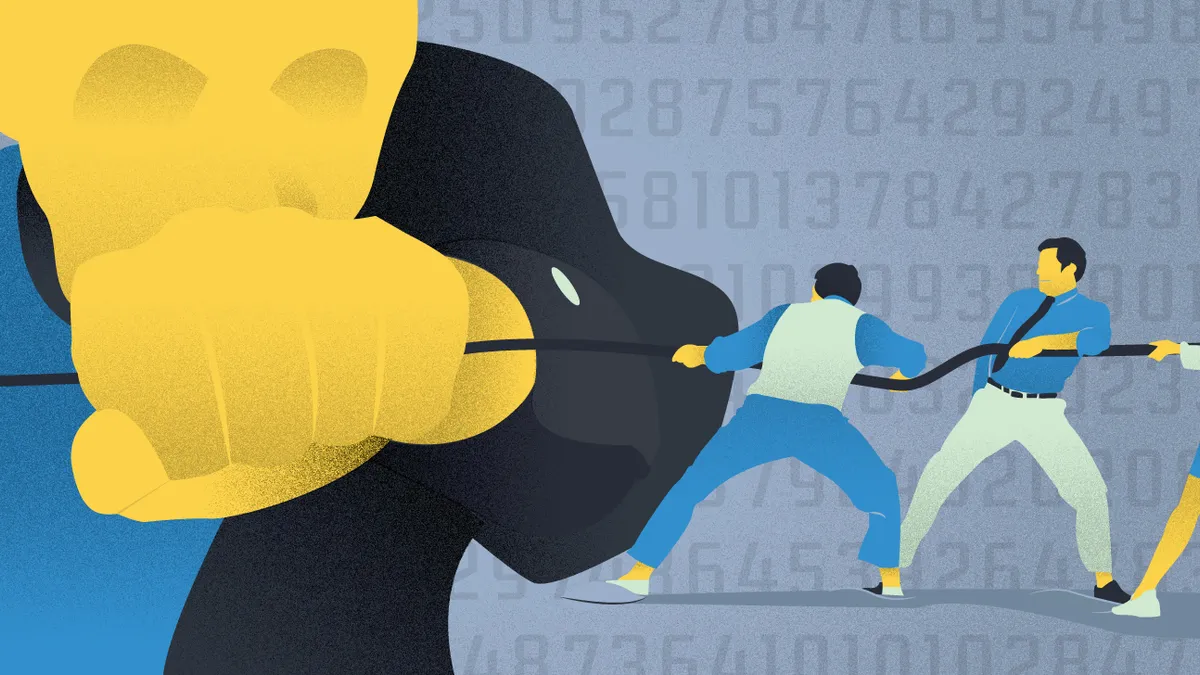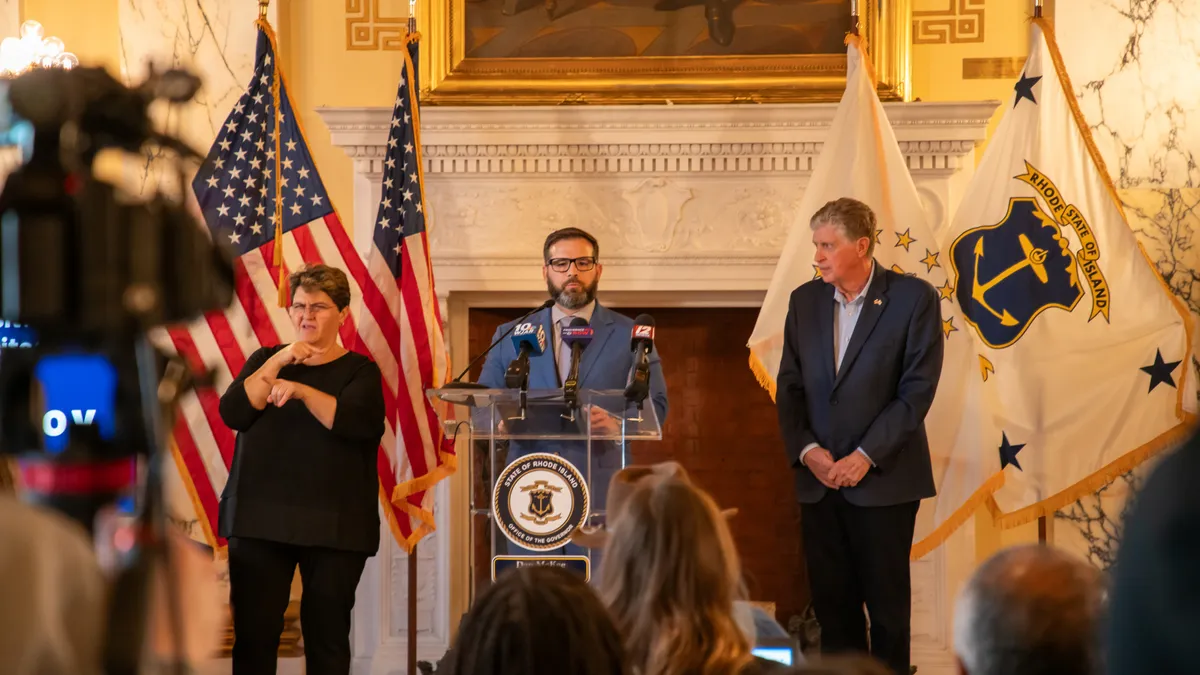This is the final piece of a two-part look at the debate surrounding broadband regulation. Read part one, which details arguments to keep current net neutrality rules in place, here.
Update: This article has been updated to reflect the results of the FCC's vote on Thursday.
In 2004, the FCC's Restoring Internet Freedom initiative set four principles for internet freedom: "the freedom to access lawful content, the freedom to use applications, the freedom to attach personal devices to the network, and the freedom to obtain service plan information."
The initiative is grounded on the perception that the 2015 Open Internet Order stifled investment and innovation and in fact undermined the open internet it purported to protect.
The FCC voted Thursday on Chairman Ajit Pai's proposal to undo the Open Internet Order. His proposal passed 3-2 with the support of commissioners Michael O'Rielly and Brendan Carr and the opposition of Mignon Clyburn and Jessica Rosenworcel.
So what does a change to the status quo, and return to the pre-2015 regulation framework, mean for the enterprise?
The internet "flourished" long before the 2015 changes, and it will continue to do so with their removal, according to Pai.
A restoration of an 'internet freedom' framework will shift from broad, heavy handed, ex-ante (before the fact) regulation to more targeted, ex-post (after the fact) regulation. The change will increase market competition and offer IT companies more opportunities to fill niche demands, according to experts.
What is internet freedom?
Proponents of internet freedom say the semantics of the debate can lead to a misunderstanding of their side.
"Everybody likes the idea of neutrality — they equate it with equality," said Roslyn Layton, visiting scholar at the American Enterprise Institute, VP of Strand Consult and board member of the Telecommunications Policy Research Conference Program Committee, in an interview with CIO Dive.
"In the marketplace, companies seek to deliver what consumers want. But under prescriptive regulation, companies seek to deliver what regulators want."

Maureen Ohlhausen
Acting Chairman of the FTC
"People want to sort of sentimentalize neutrality like it's a kind of declaration of independence for the internet. I think it's a brilliant part on the supporters' side that they use that terminology. That was no mistake on [former FCC Chairman] Tom Wheeler's part," said Layton.
Yet for internet freedom proponents, neutrality is not mutually exclusive with their framework, and market pressures on internet service providers (ISP) can organically protect neutrality where consumers want it — instead of top-down regulations.
"In the marketplace, companies seek to deliver what consumers want. But under prescriptive regulation, companies seek to deliver what regulators want," said FTC Acting Chairman Maureen Ohlhausen, speaking at an event with Pai, Carr and O'Rielly in D.C. in November.
But Layton maintains that "the original concept of the internet included priority," and that is not a bad thing. An email and a movie, for example, require vastly different resources, and roughly two-thirds of internet content today is entertainment-based.
"Great for Hollywood, that's very exciting, but the way that it's priced is the cost is a portion across all of the users, whether or not they consume that entertainment," so entertainment is effectively being subsidized by consumers, said Layton. Proponents of the proposal want entertainment providers to pay more for the cost of the network, according to Layton.
Supporters of Pai's framework also argue that some of the things net neutrality rule proponents cite as problematic with the rollback of current regulations may already be permissible. For example, under the new framework the FCC is not altering the legality of curated internet services or bundled offerings, according to Carr.
All about the investment and infrastructure
Proponents of the 2015 regulation often focus the discussion on content. But most consumer concerns relating to broadband are about access in general and not content, according to Pai. And, in terms of content, content providers say ISPs will censor content but according to Pai it is the content providers that do the censoring.
And the vast majority of Americans do not have an array of choices when it comes to a broadband provider.
"As we move to [the] Internet of Things, I will predict that broadband will be bundled with devices ... It would be stupid to buy a subscription to cover everything because every broadband connection will be so specialized to the needs of that device."

Roslyn Layton
Visiting scholar at the American Enterprise Institute
With heavy ex-ante regulations in place and so much red tape, many businesses have been disincentivized to invest in expansion and new players have been deterred from entering the market, according to many supporters of Pai's regulatory change. Heavy government oversight is generally not considered a boon for tech development and or creativity.
Broadband regulation is much like Starbucks, said Layton. Ordinarily, customers can customize to their liking; under a light regulatory framework, ISP customers can customize their broadband product. But under heavy regulation, consumers would not have customized choices. Under the 2015 regulations, neither do broadband customers.
With more investment, more infrastructure for broadband provision will arise and the broadband market will become competitive, according to proponents of Pai's proposal. And until Congress passes legislation relating to broadband — seeing as the most recent was the 1996 Communications Act — internet freedom supports say it is better to have restrained bureaucracy control of matter.
As access to broadband changes — such as an increase in the number of providers to choose from or the growth of 5G — new business opportunities for companies will arise. These opportunities could be in fiber security, telemedicine and specialized services such as the Internet of Things, according to Layton.
"People want to sort of sentimentalize neutrality like it's a kind of declaration of independence for the internet. I think it's a brilliant part on the supporters' side that they use that terminology. That was no mistake on [former FCC Chairman] Tom Wheeler's part."

Roslyn Layton
Visiting scholar at the American Enterprise Institute
"As we move to [the] Internet of Things, I will predict that broadband will be bundled with devices," said Layton. "It would be stupid to buy a subscription to cover everything because every broadband connection will be so specialized to the needs of that device that we need to have different actors to have different ways to package and price and deliver business models."
But how will fair practices and meeting regulations be upheld? The FTC's ex-post policing power will shift "from one-size-fits-all preemptive regulation to targeted enforcement that focuses enforcement action on actual market failure," said Ajit Pai.
Pai's proposal also calls for transparency disclosures by ISPs. "If an ISP's practices deviate from their disclosures, or if they fail to disclose important information, the FTC can sue," said Ohlhausen. "Also, the FTC can stop unfair practices even when there is no discretion."
In other words, the internet freedom proposal advocates for market players to work more freely and fix bad behavior when it occurs rather than enforcing strict rules upfront that can impose limitation.




















